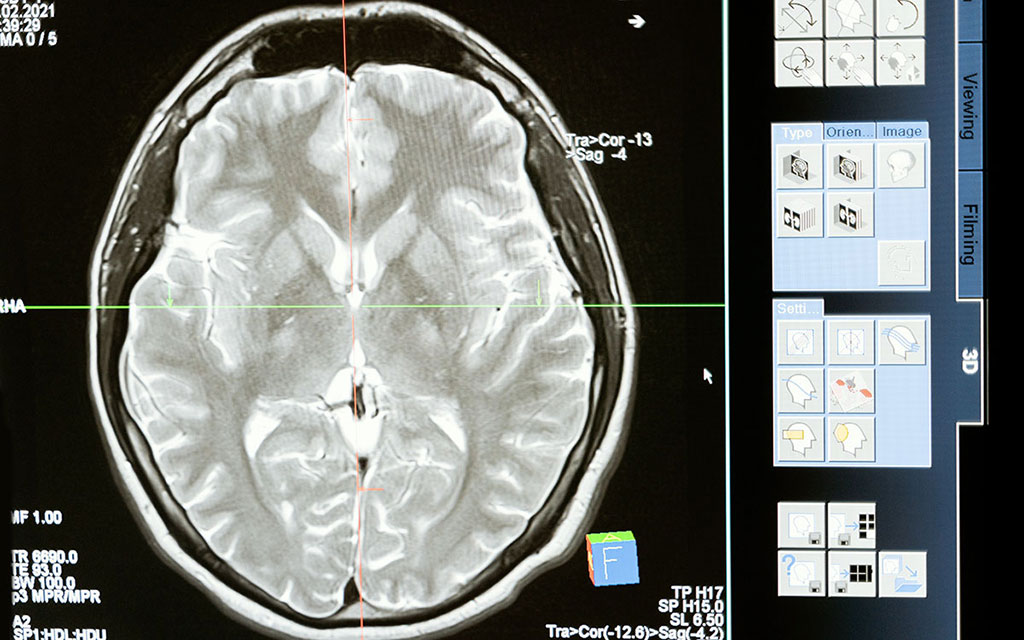First-Ever AI Test for Early Diagnosis of Alzheimer’s to Be Expanded to Diagnosis of Parkinson’s Disease
|
By HospiMedica International staff writers Posted on 05 Nov 2021 |

A new partnership will accelerate development of the industry’s first predictive device for Alzheimer’s Disease to be expanded to diagnosis of Parkinson’s disease.
Altoida, Inc. (Washington, DC, USA) has entered into a collaboration with the Bioinformatics and Human Electrophysiology Laboratory (BiHELab), Department of Informatics, at the Ionian University (Corfu, Greece) to investigate Altoida’s medical device, an FDA Breakthrough Device being developed for early diagnosis and monitoring of Alzheimer’s disease, for early diagnosis and prediction of Parkinson’s disease onset. BiHELab is a research center specializing in the application of mathematical modeling and machine learning techniques to neurodegenerative diseases, like Parkinson’s and Alzheimer’s.
With a 10-minute series of augmented reality and digital motor activities that simulate complex activities of daily living, Altoida transforms any smartphone or tablet into the world’s most powerful medical device to assess neurocognitive function. The company won Breakthrough Designation for development of their device to use artificial intelligence to help predict conversion to Alzheimer’s, and they secured funding from the Alzheimer’s Drug Discovery Foundation Diagnostics Accelerator to test their device for diagnosis in the preclinical phase of Alzheimer’s.
The three-year collaboration will kick off with the launch of the Digital Innovation HUB: Health Hub, a public-private partnership with 25 participating entities dedicated to fostering healthcare research and innovation in Greece. In that time, Altoida and BiHELab will apply and Altoida’s technology to analysis of Parkinson’s disease progression and evaluate its efficacy in diagnosing Parkinson’s in the preclinical phase.
"This is recognition of the strong clinical need for early diagnosis of Parkinson's disease, which could enable preventive and therapeutic intervention in the early stages to delay onset and improve clinical outcomes," said Ioannis Tarnanas, Ph.D., Chief Scientific Officer of Altoida. “We are excited to collaborate with BiHELab to further develop our technology, and to engage with the Health Hub’s scientific network to bring this application to life for the Greek population.”
"By applying innovative bioinformatics and machine learning techniques to clinical data, BiHeLab has aimed to identify novel biomarkers that are most indicative of risk of Parkinson’s disease,” said Professor Panagiotis Vlamos, Scientific Director at BiHELab. “For Parkinson’s patients, accurate prediction and early diagnosis could enable intervention before the extensive damage of dopaminergic neurons occurs."
Related Links:
Altoida, Inc.
Ionian University
Channels
Critical Care
view channel
Magnetically Guided Microrobots to Enable Targeted Drug Delivery
Stroke affects 12 million people globally each year, often causing death or lasting disability. Current treatment relies on systemic administration of clot-dissolving drugs, which circulate throughout... Read more
Smart Nanomaterials Detect and Treat Traumatic Brain Injuries Simultaneously
Traumatic brain injury (TBI) continues to leave millions with long-term disabilities every year. After a sudden impact from a fall, collision, or accident, the brain undergoes inflammation, oxidative stress,... Read more
Earlier Blood Transfusion Could Reduce Heart Failure and Arrhythmia in Heart Disease Patients
Blood loss during or after surgery can place significant stress on people with heart disease, increasing the risk of dangerous complications. Transfusions are often delayed until hemoglobin levels fall... Read moreSurgical Techniques
view channel
New Study Findings Could Halve Number of Stent Procedures
When a coronary artery becomes acutely blocked during a heart attack, opening it immediately is essential to prevent irreversible damage. However, many patients also have other narrowed vessels that appear... Read more
Breakthrough Surgical Device Redefines Hip Arthroscopy
Hip arthroscopy has surged in popularity, yet surgeons still face major mechanical constraints when navigating deep joint spaces through traditional cannulas. Limited tool mobility and the need for an... Read morePatient Care
view channel
Revolutionary Automatic IV-Line Flushing Device to Enhance Infusion Care
More than 80% of in-hospital patients receive intravenous (IV) therapy. Every dose of IV medicine delivered in a small volume (<250 mL) infusion bag should be followed by subsequent flushing to ensure... Read more
VR Training Tool Combats Contamination of Portable Medical Equipment
Healthcare-associated infections (HAIs) impact one in every 31 patients, cause nearly 100,000 deaths each year, and cost USD 28.4 billion in direct medical expenses. Notably, up to 75% of these infections... Read more
Portable Biosensor Platform to Reduce Hospital-Acquired Infections
Approximately 4 million patients in the European Union acquire healthcare-associated infections (HAIs) or nosocomial infections each year, with around 37,000 deaths directly resulting from these infections,... Read moreFirst-Of-Its-Kind Portable Germicidal Light Technology Disinfects High-Touch Clinical Surfaces in Seconds
Reducing healthcare-acquired infections (HAIs) remains a pressing issue within global healthcare systems. In the United States alone, 1.7 million patients contract HAIs annually, leading to approximately... Read moreBusiness
view channel
Philips and Masimo Partner to Advance Patient Monitoring Measurement Technologies
Royal Philips (Amsterdam, Netherlands) and Masimo (Irvine, California, USA) have renewed their multi-year strategic collaboration, combining Philips’ expertise in patient monitoring with Masimo’s noninvasive... Read more
B. Braun Acquires Digital Microsurgery Company True Digital Surgery
The high-end microsurgery market in neurosurgery, spine, and ENT is undergoing a significant transformation. Traditional analog microscopes are giving way to digital exoscopes, which provide improved visualization,... Read more
CMEF 2025 to Promote Holistic and High-Quality Development of Medical and Health Industry
The 92nd China International Medical Equipment Fair (CMEF 2025) Autumn Exhibition is scheduled to be held from September 26 to 29 at the China Import and Export Fair Complex (Canton Fair Complex) in Guangzhou.... Read more













